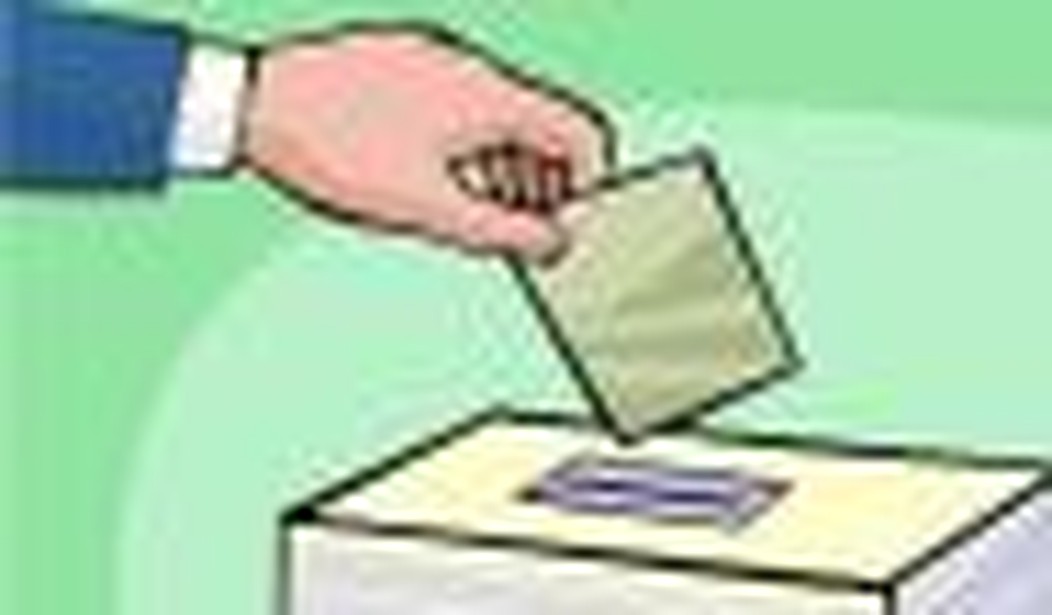It is becoming more obvious with each election cycle that that the widespread adoption of no-excuses-needed early voting has been a big mistake.
Pollsters are now revealing exit poll results to the public weeks ahead of what is still quaintly referred to as “Election Day.” They do this by breaking out their results between “early voters” and “future voters.” The former amounts to de facto exit polling, which can all too easily be designed by an unscrupulous pollster to influence the latter. Even worse, state officials are getting into the act. One such example occurred Saturday in Colorado:
Slightly more Democrats than Republicans have voted in Colorado, either by mail or at early-voting polling places.
State officials said Friday that 219,000 Democrats have cast their ballots, compared with 215,000 Republicans and 131,000 unaffiliated voters.
Doesn’t anyone care about how early voting is corrupting the process of free and fair elections?
As someone who has been involved at various times in either designing or evaluating accounting and control systems, I am astounded at the pervasive lack of controls early voting has created, virtually without organized objection.
There are at least ten other reasons why early voting is a really, really bad idea:
- The political landscape can change after you’ve voted. What if the vote on Henry Paulson’s bailout had occurred after your early vote, and your congressman’s or senator’s vote was the opposite of what you expected? Want your vote back? Sorry, too late.
- Candidates often reveal their less-than-desirable sides in the stressful runup to Election Day. Do you think any early voters might want their vote back (possibly going in either direction) as a result of Barack Obama’s “spread the wealth” statement to Joe the Plumber?
- Unpleasant or pleasant truths about candidates that should legitimately affect voter opinion sometimes arrive in the final days. A 2006 congressional candidate in Ohio was charged with domestic violence 80 days before the election. What if the arrest had occurred just eight days before Election Day, and you had already voted for her?
- Candidates can abuse early voting if they get into disputes over their residency or voter registration status. In April 2006, Ohio Second Congressional District residents learned that candidate Bob McEwen had illegally voted absentee in Ohio for at least six years while legally residing in Virginia. Later that year, based on his ownership of a condo in Columbus, Buckeye State gubernatorial candidate Ted Strickland’s eligibility to vote in the eastern Ohio’s Columbiana County where he was registered became an issue. Both McEwen and Strickland avoided pending litigation over their eligibility by voting early — something they could not have done under the strict absentee restrictions that had been in place the previous year.
- Early voting by mail corrupts the secret ballot (sorry, Washington State: where all voting in 37 of 39 counties is by mail, you have no assurance that you have representative government). Because the ballot is readily available to people besides the voter, a child, for example, can ensure that his infirm parent casts it “correctly” through coercion or deception. The child can also promise to mail the parent’s ballot and not do so if the parent voted the “wrong” way. But at the polling place, an unaccompanied person can freely vote his or her conscience with no “help.”
- There is no way to verify that only duly registered voters cast ballots (i.e., a person can use someone else’s ballot to vote).
- There is no way to absolutely safeguard ballots against loss or alteration. Ballots cast sit around for weeks, and are thus subject to destruction and/or alteration.
- It’s much easier for someone who wishes to vote in multiple states to do so.
- Boards of elections will want to start counting the votes before Election Day. In fact, that has already happened. In 2006, a Cuyahoga County, Ohio judge allowed that county’s board to begin counting at 7 a.m. on Election Eve, creating huge security issues over preventing election counters from telling outsiders about specific results.
- It’s even possible, because of the previous item, for an elections employee to determine whether or not a person who promised to vote early for a given candidate has actually voted. They can then communicate that information to a candidate or party, who can then redouble their efforts to round up that person. If that person really didn’t want to vote, that should be their right, free of harassment.
It won’t be long until candidates and parties will start using early voting poll results and other indicators as a strategy to discourage the opposition and suppress Election Day turnout.
All of this is way too high a price to pay for the ridiculously small convenience of not having to go to a physical polling place roughly once a year.
The good-old-days system that mandated voting on Election Day in the absence of a convincing exception, such as military service, true infirmity, or out-of-town business commitments, worked fine. Unlimited, no-excuses-needed early voting has accomplished nothing positive. It should — no, it must — positively end.









Join the conversation as a VIP Member